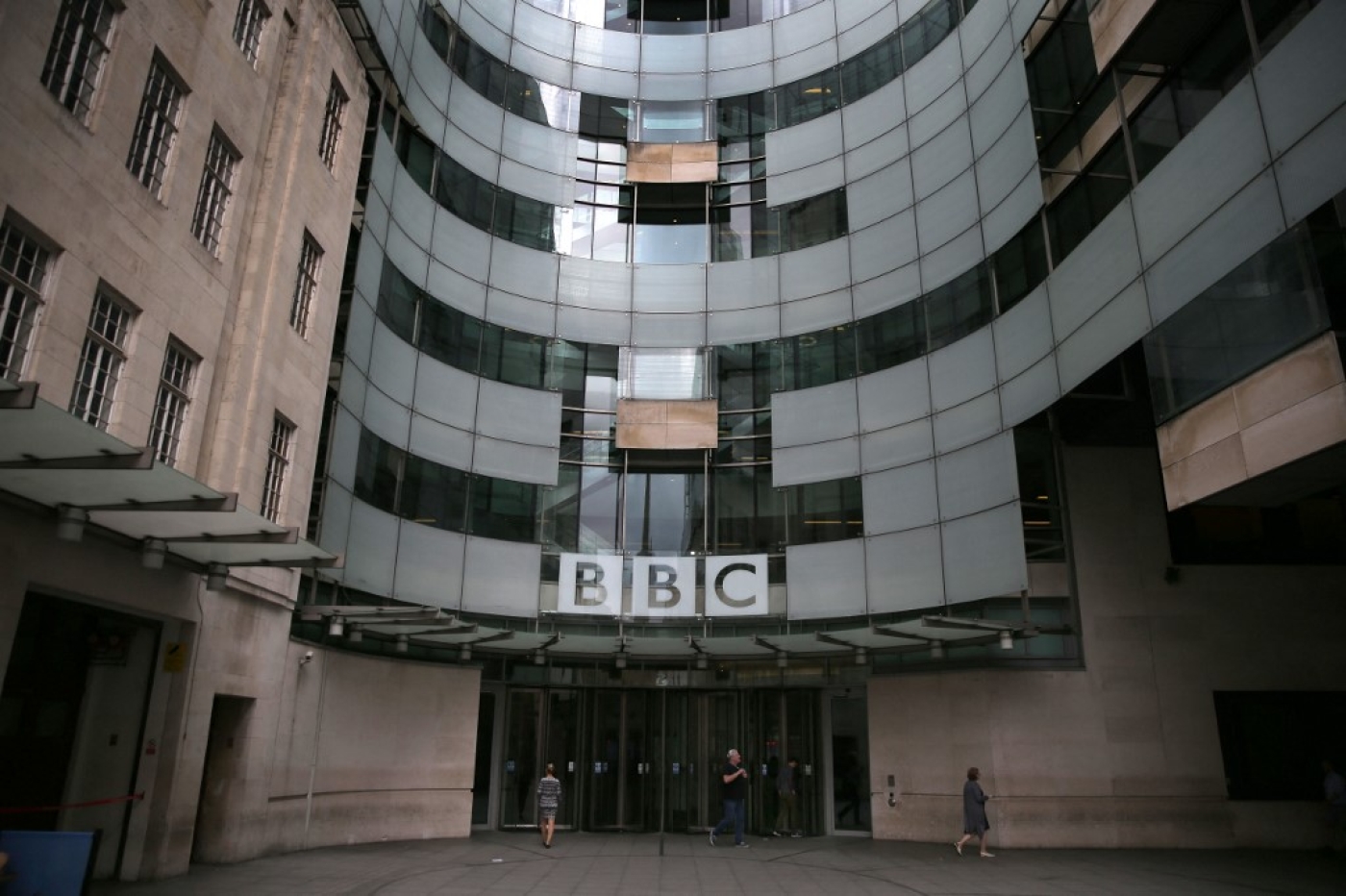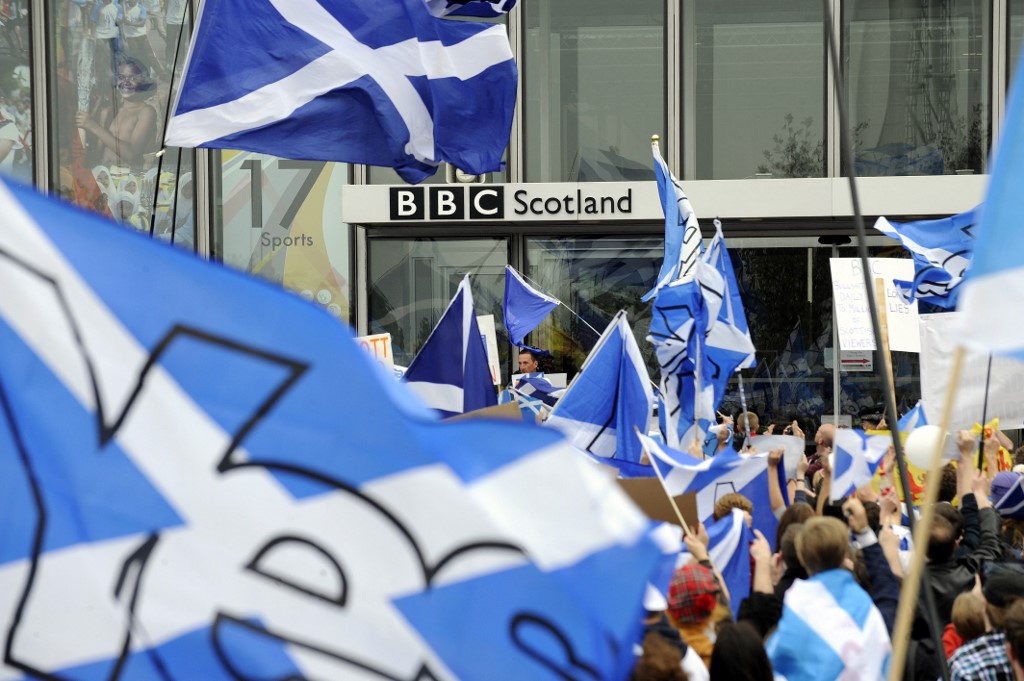Emily Maitlis is right about BBC bias - but for the wrong reasons

It took no great powers of prognostication for Emily Maitlis to predict in her recent MacTaggart lecture to the Edinburgh Television Festival that critical comments about her former employer, the BBC, would plunge her into controversy. Maybe that was the point.
Both sides took to the barricades. Each had easy soundbites to bolster their case for and against the claim that the state broadcaster is in the pocket of the Conservative government, timid and fearful of losing yet more of its public funding.
To illustrate her argument, Maitlis highlighted a 2020 decision by the BBC to reprimand her for a monologue on Newsnight, its flagship current affairs programme, criticising Dominic Cummings, Boris Johnson’s then-chief adviser. At the time, evidence that he broke the very Covid lockdown rules he helped to draft provoked widespread public indignation.
Faced with complaints from government officials, the BBC briefly suspended Maitlis and issued a hasty apology that she had violated impartiality rules.
Maitlis said she and her team had been denied “due process” to defend their script. It was as if the corporation was “sending a message of reassurance directly to the government”.
Her supporters can point to the fact that, after 12 uninterrupted years of Conservative rule, BBC management hardly looks neutral itself. The current chairman, Richard Sharp, a former banker, is one of the Tory party’s most generous benefactors. Tim Davie, the director general, is a former Conservative local council candidate.
Maitlis noted that Robbie Gibb, the spin doctor for Johnson’s predecessor, Theresa May, now sits on the BBC board. Describing him as an “active agent of the Conservative party”, she mocked his role as “arbiter of BBC impartiality”.
She cited media reports that Gibb had sought to block the appointment of journalists that might damage relations with the government.
Sour grapes?
Her detractors sidestepped these criticisms to make a barely veiled accusation of sour grapes. There were suggestions too that Maitlis has a commercial interest in making headlines: she is launching a podcast with Global, a commercial competitor to the BBC.
The state broadcaster issued a response denying government pressure. Its apology, it said, was based solely on the fact the programme breached editorial policy on impartiality. Former BBC chief executive Will Wyatt agreed, saying that Newsnight had overstepped the mark in rounding on Cummings.
The BBC selectively demands impartiality - when it suits its agenda - and selective impartiality is another term for bias
According to Charlotte Moore, the BBC’s chief content officer: “[The BBC] expect our journalists to leave our personal opinions at the door… It’s a cornerstone of the BBC.”
Meanwhile, journalistic “treasures”, from David Dimbleby to John Simpson, rallied to the BBC’s defence. Dimbleby accused Maitlis of engaging in “polemic”.
Strangely, in 2019 - before she delivered the MacTaggart lecture - Maitlis herself had dismissed accusations of BBC bias as a conspiracy theory. It was really “a confluence of cock-ups and the wrong button being pressed at the wrong time”. But on one level, Maitlis’ lecture made an unassailable case.
The BBC selectively demands impartiality - when it suits its agenda - and selective impartiality is another term for bias. Necessarily, impartiality is subjective. In the BBC’s case, it is inevitably influenced by the corporation’s core financial interest in not alienating the government of the day that funds its budget.
When questioned about this problem by Middle East Eye, a BBC spokesperson offered a standard-issue response: "The BBC places the highest value on due impartiality and accuracy and we apply these principles to our reporting on all issues."
Selective impartiality
However, those claiming the BBC is committed to impartiality between the government and its critics need to revisit the archives. Watch, for example, this clip of Andrew Marr, then the BBC’s political editor, delivering a panegyric to Tony Blair in 2003 after the UK had illegally invaded Iraq:
“[Blair] said they would be able to take Baghdad without a bloodbath and that in the end the Iraqis would be celebrating. And on both those points, he has been proved conclusively right. And it would be entirely ungracious, even for his critics, not to acknowledge that tonight he stands as a larger man and a stronger prime minister as a result.”
Jonathan Cook is the the author of three books on the Israeli-Palestinian conflict, and a winner of the Martha Gellhorn Special Prize for Journalism. His website and blog can be found at: www.jonathan-cook.net








Geen opmerkingen:
Een reactie posten